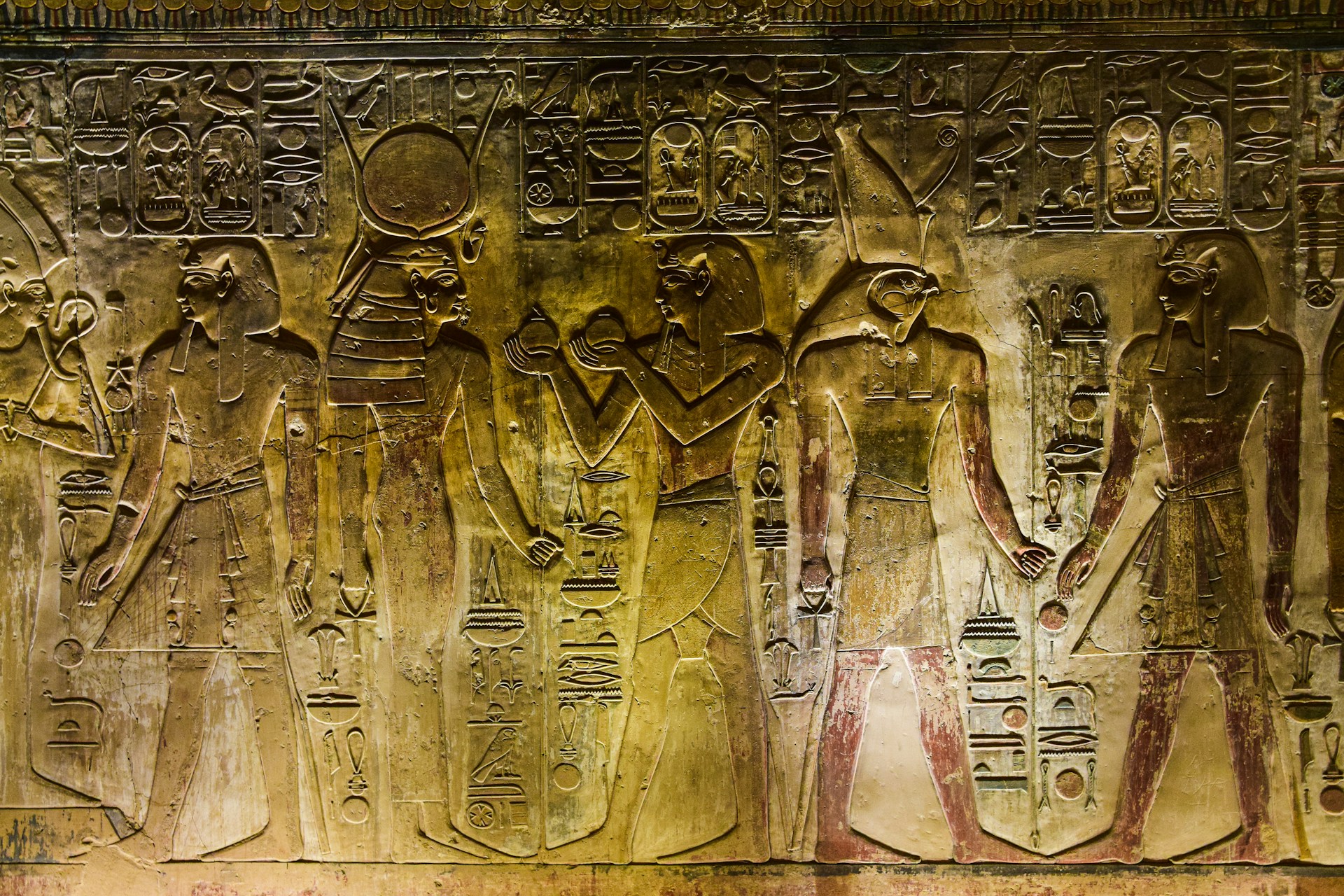A visit to Egypt—or a virtual exploration of its mythos—would be incomplete without understanding the significance of music in its spiritual and everyday life.


Post Introduction
A visit to Egypt—or a virtual exploration of its mythos—would be incomplete without understanding the significance of music in its spiritual and everyday life.
Post Content
The Egyptian god of music stands as a mystical embodiment of creativity, harmony, and divine sound. In the intricate web of ancient Egyptian mythology, few deities capture the imagination quite like Ihy, the joyful child of Hathor and Horus. Often associated with music, dance, and festive rituals, Ihy wasn’t just a symbolic figure; he represented a cultural heartbeat that echoed across temples, tombs, and celebrations.
Ihy, sometimes spelled Ihi, was revered as the god of music, joy, and youthful exuberance. His name, derived from the sound of musical jubilation, literally means "sistrum player," referencing the sacred instrument often used in rituals honoring Hathor. Depicted as a child holding a sistrum or sometimes a necklace, Ihy embodied musical celebration and spiritual devotion.
In temples like Dendera, where his mother Hathor was worshipped, Ihy’s presence was particularly strong. He featured in hymns, prayers, and temple inscriptions, emphasizing his divine role in connecting the physical and spiritual through rhythmic sound.
🔹 Recommended : egyptian phrases for tourists, Learn some Egyptian words before you travel to Egypt
Music wasn’t just entertainment in ancient Egypt—it was spiritual alchemy. Ihy played a vital role in funerary rites, temple ceremonies, and festivals. The Egyptians believed that music could guide the soul to the afterlife, soothe the gods, and maintain cosmic balance.
As a divine figure, Ihy was often invoked during celebrations and sacred dances. His association with youth and vitality made him a symbol of renewal, hope, and joy. Many temple walls, especially in the Dendera complex, depict Ihy dancing and playing instruments, surrounded by acolytes and celebrants.
🔹 Take a Look : the Great Library of Alexandria
The sistrum was more than just an instrument—it was a spiritual conduit. Shaken during rituals, it created a rattling sound believed to drive away evil spirits and please the gods. Ihy, often depicted with a sistrum, personified the harmony between divine forces and human celebration.
In marketing terms, the sistrum was Ihy’s signature brand. It defined his image, shaped his narrative, and captured the essence of what he represented: joyful reverence.
🔹 Recommended : The Egyptian Museum of Cairo
While Ihy was the primary god of music, he wasn’t alone. Hathor, his mother, was also linked to music, dance, and fertility. Bes, a dwarf god known for his protective nature, also played musical roles, especially during childbirth and household celebrations.
Unlike these deities, Ihy was uniquely positioned as the youthful expression of divine sound. His imagery focused less on protection or fertility and more on celebration, transformation, and joy through music.
Today, Ihy’s spirit lives on in Egyptian festivals, cultural performances, and museum exhibits. The Dendera Temple complex continues to draw thousands of visitors, many of whom are enchanted by the musical carvings and inscriptions honoring Ihy.
Cultural tourism in Egypt increasingly highlights figures like Ihy to attract visitors seeking immersive historical experiences. The narrative of Ihy offers a perfect blend of myth, music, and mysticism—ideal for educational tours, audio-visual exhibits, and cultural storytelling.
In an era where wellness, spirituality, and personal expression are valued, Ihy strikes a powerful chord. His story appeals to creatives, musicians, and seekers of joy. Whether through meditation music inspired by ancient Egyptian sounds or contemporary festivals evoking his legacy, Ihy continues to inspire.
For content creators and marketers, Ihy offers a compelling archetype: youthful, joyful, and deeply connected to the human spirit through sound. He's a timeless symbol of how culture and creativity intertwine. Dive deeper into the world of Egyptian culture with our day tours that highlight such stories.
Who was the Egyptian god of music?
Ihy, the joyful son of Hathor and Horus, was the primary god of music, dance, and celebration in ancient Egyptian mythology.
What instrument is associated with Ihy?
The sistrum, a sacred rattle used in rituals, is closely tied to Ihy. He’s often depicted holding or playing it.
Was music important in ancient Egypt?
Absolutely. Music played a central role in religious ceremonies, funerals, and everyday celebrations, believed to connect the human world with the divine.
Where can I see depictions of Ihy today?
The Temple of Hathor at Dendera showcases multiple images and carvings of Ihy, especially in musical contexts.
Is Ihy still relevant in modern Egyptian culture?
While not worshipped today, Ihy’s legacy endures in festivals and cultural storytelling that spotlight Egypt’s rich mythological heritage.
Ihy may have danced through history, but his rhythm still pulses in the heart of Egyptian culture. Whether you're a traveler, a storyteller, or a brand seeking powerful myths, the Egyptian god of music offers an irresistible narrative. He teaches us that music isn’t just sound—it’s soul, story, and spirit wrapped into one divine beat.
And if you're exploring Egypt, don't miss our cultural heritage tours or get inspired by practical travel tips to enrich your journey.